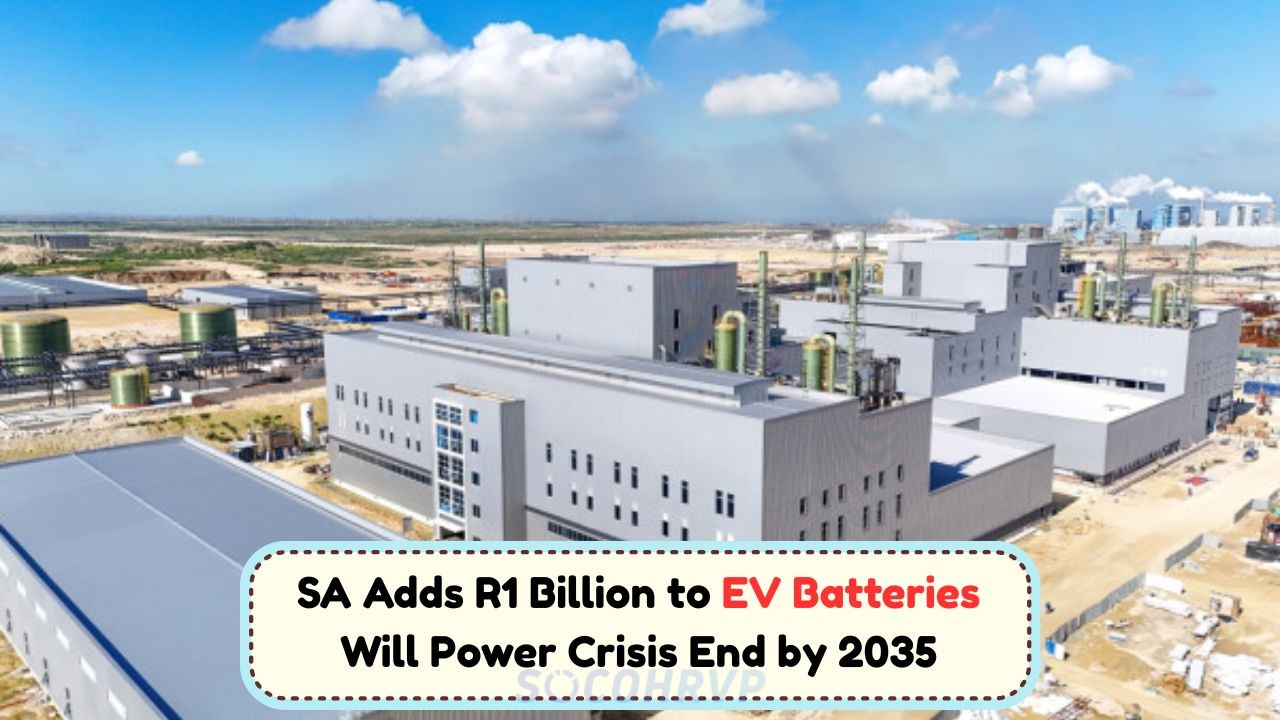October 2025: South Africa’s R1 Billion Bid to Woo EV Giants: South Africa is making headlines with its ambitious move to position itself as a leading hub for electric vehicle (EV) manufacturing. With a staggering R1 billion investment, the country aims to attract global EV giants to set up operations within its borders. This strategic push is not only about capitalizing on the growing demand for electric vehicles but also about fostering economic growth and job creation. As the global shift towards sustainable energy intensifies, South Africa’s initiative could potentially transform its automotive sector and bolster its economy.
South Africa’s Strategic Vision for EV Manufacturing
The South African government has outlined a bold vision to transform the nation into a key player in the global electric vehicle market. This R1 billion initiative is designed to entice major EV manufacturers by offering incentives such as tax breaks, reduced import duties on raw materials, and streamlined regulatory processes. The government plans to establish dedicated EV manufacturing zones equipped with cutting-edge facilities and infrastructure. By doing so, South Africa hopes to leverage its rich mineral resources, including lithium and cobalt, which are essential for EV battery production, further enhancing its appeal to international manufacturers.
- Tax incentives for EV manufacturers
- Dedicated manufacturing zones
- Streamlined regulatory processes
- Availability of essential minerals
- Focus on sustainable energy sources
- Job creation in the automotive sector
- Boost to local economies
Is Tesla Considering a Move to South Africa?
One of the most anticipated questions is whether renowned EV giant Tesla is considering establishing a presence in South Africa. While Tesla has yet to make an official announcement, industry insiders speculate that the country’s strategic location, coupled with its abundant natural resources, makes it an attractive option. South Africa’s existing automotive industry infrastructure, skilled workforce, and commitment to renewable energy further add to its allure. If Tesla or other major EV players decide to invest in the region, it could lead to significant technological advancements and economic benefits, marking a new era for the South African automotive industry.
- Speculation about Tesla’s interest
- Potential for technological innovation
- Impact on local economies
- Advantages of South Africa’s location
- Existing infrastructure and workforce
- Commitment to renewable energy
- Strategic benefits for Tesla
Economic Implications of the R1 Billion Investment
The economic implications of South Africa’s R1 billion investment in the EV sector are profound. This initiative is expected to create thousands of jobs, not only in manufacturing but also in related sectors such as logistics, research and development, and renewable energy. Local businesses stand to benefit from increased demand for services and products, stimulating further economic activity. Additionally, the move could position South Africa as a leader in the African EV market, attracting further investment and innovation. The government’s commitment to sustainable development and green energy solutions aligns with global trends, making South Africa a competitive player on the international stage.
- Job creation in multiple sectors
- Boost to local businesses
- Potential leadership in African EV market
- Attraction of further investment
- Alignment with global sustainability trends
- Increased demand for renewable energy solutions
- Enhanced technological capabilities
Challenges and Opportunities in the EV Sector
While the prospects for South Africa’s EV sector are promising, there are challenges that must be addressed. Infrastructure development, particularly in terms of charging stations and electricity supply, is a critical area that requires attention. The country must also ensure that its workforce is equipped with the necessary skills to meet the demands of the evolving automotive industry. However, these challenges present opportunities for innovation and collaboration with global partners. By investing in education and training, South Africa can build a resilient and adaptable workforce, ready to embrace the future of transportation and contribute to sustainable economic growth.
- Infrastructure development needs
- Skills training for the workforce
- Opportunities for innovation
- Global collaboration potential
- Focus on sustainable development
- Challenges in electricity supply
Global Impact of South Africa’s EV Initiative
South Africa’s ambitious EV initiative is likely to have a ripple effect across the global automotive industry. As the country positions itself as an attractive destination for EV manufacturing, it could inspire other nations to follow suit, accelerating the global transition to electric vehicles. This move not only reinforces South Africa’s commitment to sustainable development but also strengthens its economic ties with other countries. By becoming a hub for EV production, South Africa could play a pivotal role in shaping the future of transportation, contributing to a greener and more sustainable world.
| Aspect | South Africa | Global Impact |
|---|---|---|
| EV Manufacturing | Increased Investment | Inspiration for Other Nations |
| Economic Growth | Job Creation | International Economic Ties |
| Sustainability | Green Energy Focus | Global Environmental Benefits |
Frequently Asked Questions
What incentives is South Africa offering to EV manufacturers?
South Africa is offering tax breaks, reduced import duties, and streamlined regulatory processes to attract EV manufacturers.
How will Tesla’s potential move impact South Africa?
It could lead to technological advancements, job creation, and significant economic benefits for the region.
What are the challenges facing South Africa’s EV sector?
Key challenges include infrastructure development, such as charging stations, and ensuring a skilled workforce.
How does South Africa’s initiative align with global trends?
It aligns with the global shift towards sustainable energy and the growing demand for electric vehicles.
What is the potential global impact of this initiative?
It could inspire other nations to invest in EV manufacturing, accelerating the global transition to electric vehicles.








